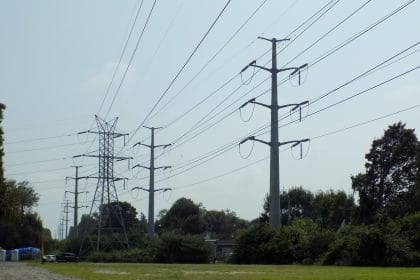SpaceX Appeals FCC Denial of Rural Digital Opportunity Money

WASHINGTON — Elon Musk’s SpaceX is appealing the $885 million denial from the Rural Digital Opportunity Fund in early August.
The company had won the grant in 2020, which would have subsidized the deployment of its satellites to bring internet to underserved communities.
The company called the denial “grossly unfair” and “flawed as a matter of both law and policy,” in the 36-page appeal document that details the company’s application process.
The company laid out how it missed some key deadlines because it was waiting on documentation for its application from multiple states.
“Despite SpaceX’s efforts, five states still had not granted SpaceX’s applications by the June 7, 2020, deadline to submit ETC documentation. Accordingly, SpaceX timely submitted a request for waiver of the deadline for these states,” according to the appeal.
“Since then, just three states included in the waiver request have not yet approved SpaceX’s applications for ETC designation: California, Hawaii, and Mississippi. In these states, the ETC designation proceedings have been excessively delayed for reasons wholly outside of SpaceX’s control.”
The company is appealing the commission’s decision, asking to have more time to get that paperwork.
In the wake of the appeal, the two top Republicans on the Federal Communications Commission have come out in favor of the appeal.
“I welcome SpaceX’s appeal of the Wireline Competition Bureau’s decision to rescind the $885 million in Rural Digital Opportunity Fund funding that was awarded to its Starlink service,” Commissioner Nathan Simington said in a statement Monday, raising questions about the reasoning behind the decision and the national security threats of not moving ahead with the technology.
“I am concerned that a confluence of factors both within and without the FCC, including this decision, our lengthy review of SpaceX’s application to launch more satellites, and the NTIA’s decision to exclude satellite broadband providers from the $42.5 billion BEAD program, will all combine to keep millions of rural Americans disconnected and excluded from our digital economy for years to come,” Simington wrote.
“These actions will also risk giving Chinese satellite internet providers, who have the full support of their government, a competitive advantage in serving the rest of the world. This would be especially troubling because it might raise questions for low-earth orbit connectivity companies worldwide about the regulatory risks of choosing to domicile in the United States.”
He joins fellow Republican Commissioner Brendan Carr in criticizing the decision that came out when Carr was on a work trip in Alaska. Carr was unaware of the decision.
The commission denied the application “without a vote or authorization from the agency’s commissioners,” Carr wrote in his August 24 statement.
These issues are also being raised as SpaceX’s Starlink is being left out of the $48 billion Broadband Equity, Access, and Deployment Program overseen by the Department of Commerce’s National Telecommunications and Information Administration.
Musk’s Starlink was ultimately too expensive and not reliable enough for commissioners to agree to, Chairwoman Jessica Rosenworcel said at the time of the denial. And the company didn’t meet certain benchmarks, she added.
SpaceX was paired with a denial to LTD Broadband, which had won $1.3 billion. The company didn’t have the proper registration in 15 of the states in which it was attempting to install broadband.
These denials came on the heels of the commission issuing fines at the end of July to companies that have not moved ahead with their subsidized broadband expansion plans. The commissioners have each promised in public meetings that they want to ensure the funds get used properly, implementing safeguards into the various programs seeking to expand broadband access.
“While acknowledging the bureau’s concerns about Starlink service achieving required benchmarks, I would point out that certain other RDOF bidders have yet to begin construction and are thus intrinsically farther behind,” Simington said in his statement.
Madeline can be reached at [email protected] or @ByMaddieHughes
























